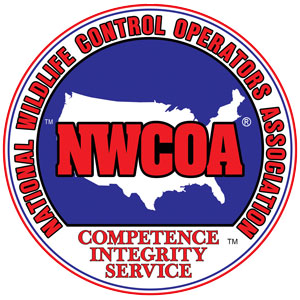Our area is renowned for its picturesque landscape and an array of wildlife, a sight to behold for residents and visitors alike. Among this vibrant fauna, the nimble squirrels are perhaps the most noticeable, effortlessly darting from one tree to another. However, beneath their harmless appearance lies a set of challenges they can present, especially if their population remains unchecked.
Nature is a delicate balance. Every creature plays a pivotal role, contributing to the ecosystem's equilibrium. Squirrels, with their penchant for burying seeds, assist in forest regeneration, a task crucial for the environment. But what happens when their numbers surge disproportionately? Such an imbalance can disrupt other species, pushing some to the brink of their habitats. For homeowners, the rise in the population presents a two-fold challenge: an increased likelihood of property damage and the introduction of health risks.
At first glance, attics, garages, and sheds might seem mundane parts of our homes. But for squirrels, these spaces offer a sanctuary, protected from natural predators and extreme weather conditions. As they settle in, they begin reshaping their new abode. Their incessant need to gnaw, a behavior stemming from the continuous growth of their teeth, can lead to substantial damage. Electrical wiring is particularly at risk. A nibbled wire not only disrupts the power flow but can also be a potential fire hazard. Beyond this, the structural integrity of the house, especially wooden beams and insulation, can also be compromised.
Their potential as health hazards often goes unmentioned. These creatures can be carriers of certain diseases, some of which are transmittable to humans. Rabies, a deadly disease if untreated, and leptospirosis, are among the concerns. Besides this direct threat, the parasites that tag along – ticks and fleas – can introduce additional diseases like Lyme disease. Their presence also means a potential influx of droppings and urine, which can contaminate areas of the home and pose health risks. An agitated squirrel, if cornered, might defend itself, leading to bites or scratches.
A homeowner's pride, the garden, is also a gourmet meal for these creatures. From bulbs waiting to bloom into beautiful flowers to fruits ready for harvest, squirrels spare nothing. Their indiscriminate feeding habits can leave a once-thriving garden barren in no time. Not just limited to plants, they're also known culprits for raiding bird feeders. This not only depletes the feed meant for the birds but also often scares away the very birds homeowners wish to attract.
Imagine a quiet night, disrupted by incessant gnawing, or an early morning turned chaotic by the sounds of scurrying above. These are the auditory markers of a presence in one's home. Such disturbances, especially during odd hours, can rob individuals of their peace and sleep, leading to heightened stress.
The implications of an infestation aren't limited to mere discomfort or health concerns. The tangible damages translate into financial burdens. Repair bills can quickly pile up, given the extensive harm these creatures can inflict. In the real estate realm, a house with evident squirrel damage or infestations can see a drop in its market value.
Tackling this problem might seem straightforward. A trap here, a deterrent there, and the issue should be resolved, right? Unfortunately, it's rarely that simple. Ineffective removal methods can exacerbate the problem. This is where the expertise of professionals, like Zombie Wildlife, becomes indispensable. With a team well-versed in their behavior and habits, the removal process becomes efficient and safe. Once the immediate problem is addressed, preventive measures are implemented, ensuring homeowners don't face a recurring dilemma.
FAQs
Q1: How do I distinguish between typical squirrel activity and signs of an infestation in my property?
A1: While occasional sightings in your yard can be normal, frequent and concentrated activity around specific areas like the base of your home, attic vents, or frequent sounds of scampering within your walls might indicate an infestation. If you notice chewed entry points, droppings, or nesting materials in and around your property, it's likely time to consult a professional.
Q2: Are there any plants or vegetation that they particularly dislike which I can use to deter them from my garden?
A2: Squirrels tend to avoid strong scents. Planting mint, marigold, or mustard can act as natural deterrents. Additionally, sprinkling cayenne pepper or crushed red pepper around planting beds can discourage them, though these need reapplication, especially after rain, and if populations are out of control trapping by a professional may be necessary.
Q3: I’ve heard they can cause power outages. Is this true, and how does it happen?
A3: Yes, it's true. They have been responsible for numerous power outages. Their penchant for gnawing can lead them to chew through electrical wires, causing short circuits. Additionally, if a squirrel bridges the gap between a transformer and a power line or between two power lines, it can create a path for electricity to flow, leading to shorts or even explosions in the transformer.
Squirrels, with their bushy tails and agile movements, might be a delightful sight in a park. But when their activities start affecting one's quality of life and peace of mind, it's time to act. Zombie Wildlife offers the expertise and reassurance needed to handle such situations.
Contact us today for all of your wildlife removal needs.





